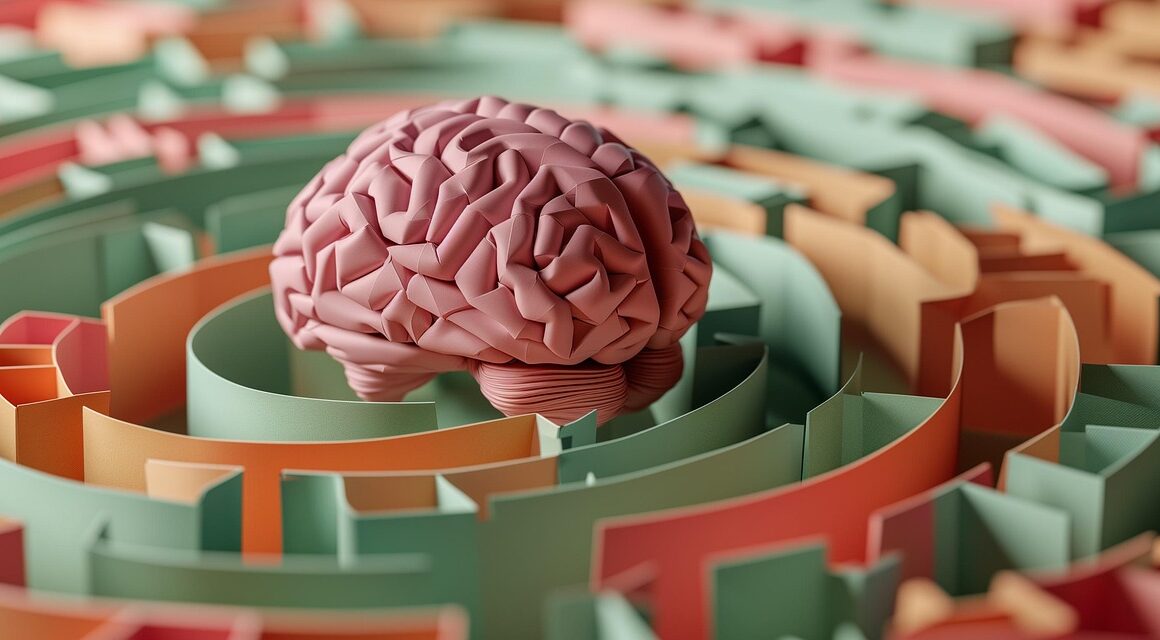Creatine Monohydrate: Benefits Beyond Muscle for Cognitive Performance
For years, creatine monohydrate has been a staple supplement for athletes focusing on muscle growth, strength, and recovery. However, recent research indicates that this compound may also play a pivotal role in cognitive function. One of the primary components of creatine is phosphocreatine, which enhances the availability of ATP, the energy currency of the cell. Increased ATP availability is crucial not just for physical performance but also for mental acuity. Studies have suggested that creatine supplementation can enhance working memory and improve overall cognitive performance in tasks requiring sustained attention. Many experts note that especially during high-stress cognitive tasks or intense mental challenges, creatine may provide an edge over fatigue and cognitive decline, highlighting its dual role in both the gym and in studying or professional environments. Given its effectiveness in boosting energy metabolism in the brain, creatine could help individuals tackle complex problems, making it a valuable supplement for students and working professionals alike. With no significant side effects reported when taken appropriately, it presents a safe option for enhancing cognitive performance.
One of the most intriguing aspects of creatine monohydrate is its impact on neuroprotection. Studies suggest that creatine possesses neuroprotective properties, potentially shielding the brain from neurodegenerative diseases. This could be particularly beneficial for individuals at risk of cognitive decline associated with aging or neurodegenerative conditions. The enhancement of mitochondrial function is believed to be one of the ways that creatine offers protection, allowing for better energy management in brain cells. Furthermore, individuals engaged in mentally taxing seminars, exams, or competitions might experience less fatigue with creatine supplementation. Some studies indicate that anxiety levels may also decrease as cognitive performance improves, contributing to overall mental health. There are various delivery methods for creatine, such as powders and capsules, making it accessible for different lifestyles and preferences. It’s essential to maintain proper hydration while using this supplement, as it can draw water into the muscles. In essence, through a multifaceted approach to cognitive and physical health, creatine monohydrate offers more than just muscle benefits. It bridges physical fitness with mental alertness, presenting a holistic solution for those looking to improve their overall performance.
Science Behind Creatine and Cognitive Function
At its core, the cognitive benefits of creatine stem from its ability to improve brain energy metabolism. The brain is a highly energy-demanding organ, and a lack of sufficient energy can severely impact cognitive abilities. When creatine is supplemented, especially in those with lower baseline levels, it can significantly enhance cognitive functions such as memory, reasoning, and reaction time. Various studies have demonstrated that creatine not only aids physical athletes but also plays a vital role in enhancing mental functions in healthy individuals. For example, a series of controlled tests show improved performance in tasks requiring short-term memory and rapid problem-solving skills. These findings suggest that creatine might be particularly effective among those engaged in high-pressure, intellectually demanding activities such as competitive examinations or similar stressful environments. Additionally, creatine has been linked with mood enhancement, promoting greater emotional stability and improved resilience against stressors. As mental health awareness continues to grow, the role of dietary supplements like creatine in cognitive therapy applications could pave the way for new approaches in both nutrition and psychology. This broadened perspective highlights the compound’s versatility.
The benefits of creatine monohydrate extend remarkably to varied age groups, including children and the elderly. For younger individuals, particularly those involved in sports and academics, creatine supplementation can lead to enhanced cognitive development, facilitating both learning and performance. This has led to a rising interest in its application within educational contexts, as students seek cognitive enhancement. Conversely, elderly individuals experiencing cognitive decline could find that creatine supplementation helps to retain cognitive functions. Research suggests that sustaining ATP production can promote neuronal health and vitality, thus playing a role in maintaining cognitive capabilities as one ages. Moreover, considering the simplicity of creatine as a supplement, it allows easy integration into daily regimens. In the world of sports nutrition, it fits seamlessly alongside traditional supplement stacks aimed at improving performance. In summary, whether aimed at boosting academic achievement or preserving cognitive function in older adults, creatine offers remarkable versatility. This unique ability to support cognitive function across the lifespan encapsulates the potential of creatine monohydrate as more than just a performance-enhancing aid for athletes.
Why Incorporate Creatine in Daily Diet?
Incorporating creatine into the daily diet can be especially beneficial for individuals seeking to optimize their mental performance. For students cramming for exams, professionals facing tight deadlines, or anyone requiring heightened focus, creatine’s ability to enhance energy metabolism in the brain is noteworthy. How to effectively include creatine in the diet involves ideally assessing individual energy demands and adjusting intake according to activity levels and goals. Many experts suggest taking creatine during periods of heightened cognitive demand to maximize its benefits. Additionally, pair it with a balanced diet—which includes plenty of antioxidants and omega-3 fatty acids to support brain health. Hydration remains equally critical, so maintaining fluid intake while using creatine enables better absorption and performance. Another consideration for athletes using creatine is timing; often, intake around workout sessions provides synergistic effects for both mental and physical performance. Supplements such as creatine can be transformative in achieving cognitive prowess while pursuing physical fitness or engaging intensely in studies. Thus, knowing when and how to utilize creatine effectively can foster excellence in both mind and body.
Notably, creatine can also aid recovery from mental fatigue, boosting overall energy levels after extended periods of cognitive exertion. Its role in facilitating faster recovery times may allow individuals to engage in more frequent and intense bouts of mental activity without experiencing diminished returns. As such, creatine deserves attention from both fitness enthusiasts and students alike. Additionally, understanding the different forms of creatine, such as creatine ethyl ester and buffered creatine, can help individuals choose the supplement that best fits their needs and lifestyle. While creatine monohydrate remains the most researched and proven effective type, exploring alternatives might provide additional benefits depending on personal health goals. Consistency in supplementation is essential for optimal benefits, as the real-world impact becomes evident only with regular intake. Therefore, prospective users should create a plan tailored to their specific requirements. As more research continues to unfold about its cognitive benefits, creatine’s reputation is likely to grow as a valuable addition to both the athlete’s supplement stack and the cognitive enhancer for focused individuals. Harnessing its potential could lead to a remarkable enhancement in productivity.
Concluding Thoughts on Creatine’s Versatility
In conclusion, creatine monohydrate’s versatility as a supplement extends into domains beyond physical performance, significantly impacting cognitive function and mental clarity. For those looking to enhance cognitive performance, incorporating creatine into their routine may lead to noticeable improvements in memory, focus, and overall mental stamina. It is essential, however, for potential users to access reliable sources of information regarding dosages and applications to ensure that they utilize this supplement safely and effectively. With ongoing research continually revealing the implications of creatine on cognitive health and recovery, its integration into daily regimens could prove beneficial across a wide spectrum of individuals. Whether used for athletic endeavors or academic excellence, creatine monohydrate has demonstrated profound potential. By blending athletic performance with cognitive enhancement, this supplement positions itself as an invaluable ally in achieving peak performance both mentally and physically. As awareness of these benefits spreads, those prioritizing cognitive health will be well-equipped to make informed decisions regarding their supplements. Ultimately, creatine monohydrate could become a cornerstone of a comprehensive approach to health and wellness in future nutritional strategies.
As research continues to unveil the far-reaching influences of creatine, it remains crucial for individuals to consult healthcare professionals before beginning any new supplement regimen. Each person’s body chemistry is unique, and what works for one may not be ideal for another. Thus, individual assessment and professional consultation can ensure that creatine serves its intended purpose while maximizing safety. The coming years promise exciting developments in understanding how such supplements can enhance various aspects of both mental and physical performance. Prospective users should stay informed through credible resources as scientific studies evolve. Creating a personalized approach that combines a well-rounded diet, physical activity, and mental exercises alongside supplementation can yield optimal results. As the fields of nutritional science and cognitive psychology continue to intersect, more individuals will recognize the potential benefits of supplements like creatine monohydrate. In doing so, they could pave the way for unprecedented performance capabilities in both academic and athletic settings. In summary, embracing the cognitive advantages of creatine may just be the boost many seek in an increasingly competitive world.


